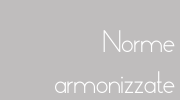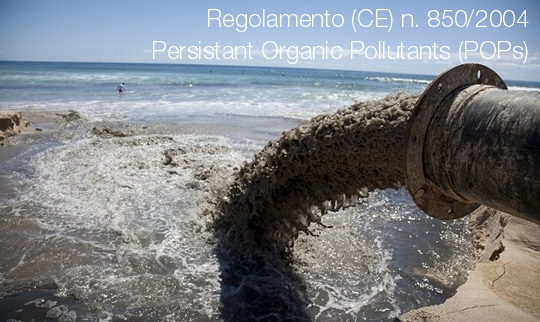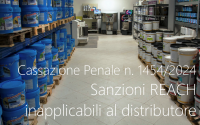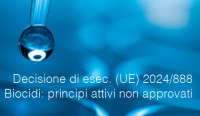Regolamento CE 850/2004 (POPs)
| ID 2159 | | Visite: 24928 | Regolamento POPs | Permalink: https://www.certifico.com/id/2159 |
Regolamento (CE) n. 850/2004
Regolamento (CE) n. 850/2004 del parlamento europeo e del consiglio del 29 aprile 2004 relativo agli inquinanti organici persistenti e che modifica la direttiva 79/117/CEE
GU L 158/7 del 30.04.2004
________
...
Persistant Organic Pollutants (POPs)
Persistent Organic Pollutants (POPs) are chemical substances that persist in the environment, bioaccumulate through the food web, and pose a risk of causing adverse effects to human health and the environment. This group of priority pollutants consists of pesticides (such as DDT), industrial chemicals (such as polychlorinated biphenyls, PCBs) and unintentional by-products of industrial processes (such as dioxins and furans).
Persistent Organic Pollutants are transported across international boundaries far from their sources, even to regions where they have never been used or produced. The ecosystems and indigenous people of the Arctic are particularly at risk because of the long-range environmental transportation and bio-magnification of these substances. Consequently, persistent organic pollutants pose a threat to the environment and to human health all over the globe.
Regulation (EC) No 850/2004 of 29 April 2004 complements earlier Community legislation on POPs and aligns it with the provisions of the international agreements on POPs.
To a certain extent the Regulation goes further than the international agreements emphasising the aim to eliminate the production and use of the internationally recognised POPs.
The Regulation contains provisions regarding production, placing on the market and use of chemicals, management of stockpiles and wastes, and measures to reduce unintentional releases of POPs. Furthermore, Member States must set up emission inventories for unintentionally produced POPs, national implementation plans (NIPs) and monitoring and information exchange mechanisms.
Article 12 of the Regulation requires annual reporting by Member States on the actual production and use of POPs, and triennial reporting on the implementation of other provisions of the Regulation ("Article 12 Reports").
The first synthesis report (Annex I - Annex II) for the period 2004-2006 and the second synthesis report, for the period 2007-2009, were completed in 2009 and 2011, respectively.
Both of the reports were finalised by contractors on behalf of the Commission. These synthesis reports present the consultants' findings and do not constitute the view of the European Commission.
______
Update 24.04.2019
Modifica: Regolamento (UE) 2019/636
_______
Disponibile il testo consolidato al 30.09.2016 per Abbonati
Modificato da:
Regolamento (CE) n. 1195/2006 del Consiglio del 18 luglio 2006 L 217 1 8.8.2006
Regolamento (CE) n. 172/2007 del Consiglio del 16 febbraio 2007 L 55 1 23.2.2007
Regolamento (CE) n. 323/2007 della Commissione del 26 marzo 2007 L 85 3 27.3.2007
Regolamento (CE) n. 219/2009 del Parlamento europeo e del Consiglio dell’11 marzo 2009 L 87 109 31.3.2009
Regolamento (CE) n. 304/2009 della Commissione del 14 aprile 2009 L 96 33 15.4.2009
Regolamento (UE) n. 756/2010 della Commissione del 24 agosto 2010 L 223 20 25.8.2010
Regolamento (UE) n. 757/2010 della Commissione del 24 agosto 2010 L 223 29 25.8.2010
Regolamento (UE) n. 519/2012 della Commissione del 19 giugno 2012 L 159 1 20.6.2012
Regolamento (UE) n. 1342/2014 della Commissione del 17 dicembre 2014 L 363 67 18.12.2014
Regolamento (UE) 2015/2030 della Commissione del 13 novembre 2015 L 298 1 14.11.2015
Regolamento (UE) 2016/293 della Commissione dal 1° marzo 2016 L 55 4 2.3.2016
Regolamento (UE) 2016/460 della Commissione del 30 marzo 2016 L 80 17 31.3.2016
Rettificato da:
Rettifica, GU L 229 del 29.6.2004, pag. 5 (850/2004)
Collegati
| Descrizione | Livello | Dimensione | Downloads | |
|---|---|---|---|---|
| Regolamento (CE) n. 850 2004 30.09.2016.pdf Testo consolidato 30.09.2016 |
364 kB | 50 |
Tags: Chemicals Regolamento POPs














































